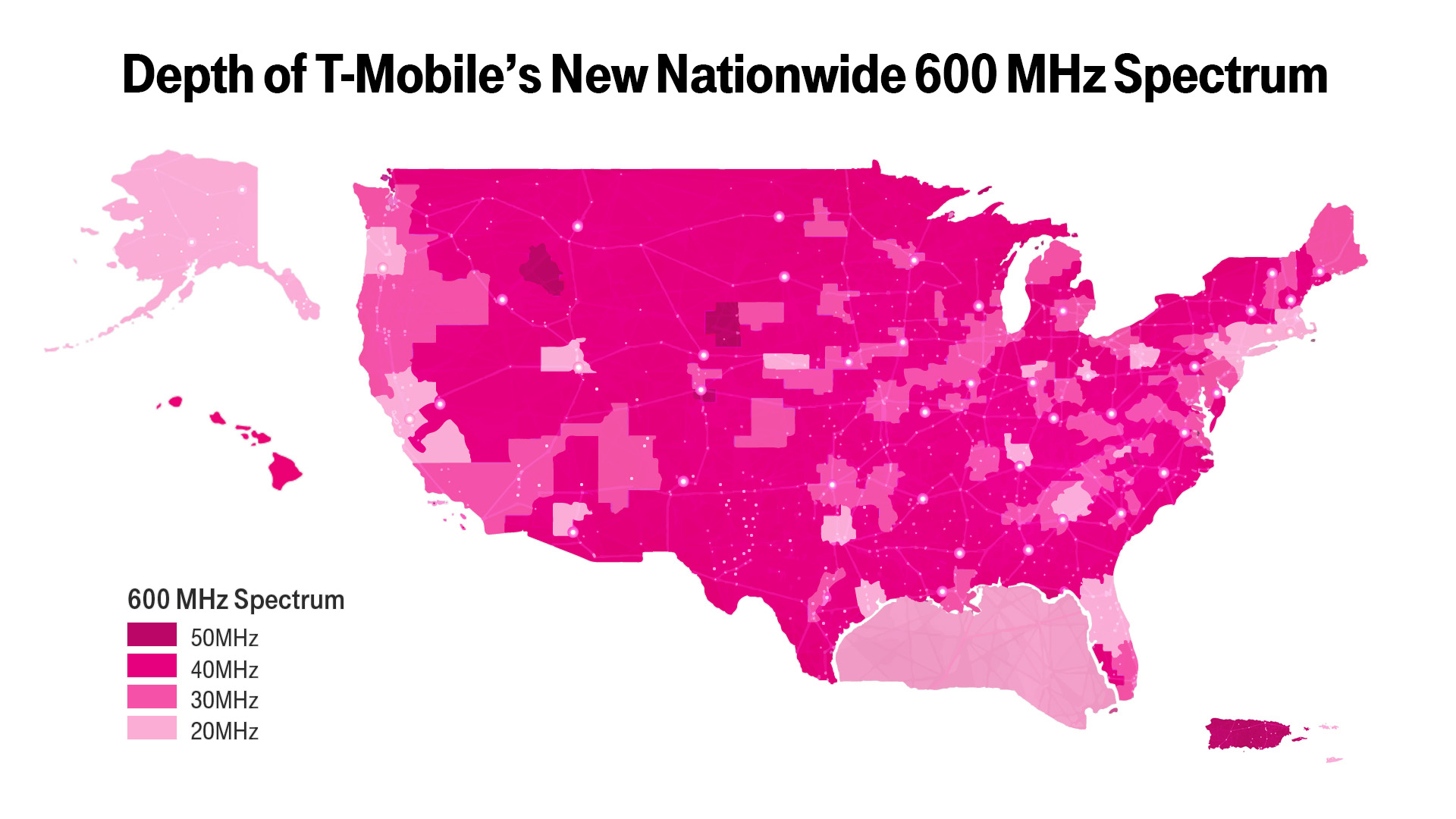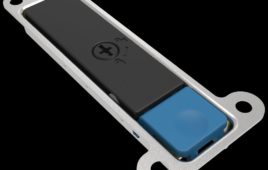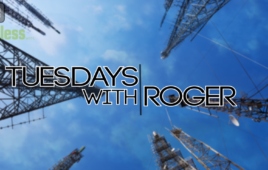On Thursday, the FCC announced the closing of the broadcast incentive auction, and revealed that some of the largest winners were T-Mobile, Dish, Comcast, and US Cellular. At $19.8 billion in gross revenue for 70 MHz of spectrum, the incentive auction is among the highest grossing auctions conducted by the FCC, according to a statement put out by the Commission.
“The conclusion of the world’s first incentive auction is a major milestone in the FCC’s long history as steward of the nation’s airwaves,” FCC Chairman Ajit Pai said. “Consumers are the real beneficiaries, as broadcasters invest new resources in programming and service, and additional wireless spectrum opens the way to greater competition and innovation in the mobile broadband marketplace.”
T-Mobile was quick to confirm its big win in the results, saying that it took 45 percent of all low-band spectrum sold, covering 100 percent of the United States. The Un-carrier reports it garnered 31 MHz nationwide on average, which reportedly quadruples its low-band holdings The cost? It was $7.99 billion, which is said to be the company’s largest investment ever.
T-Mobile President and CEO John Legere released a video discussing the auction results, which included his usual animated style and digs at the competition. “These auction results are a win for everyone, especially consumers, and generated billions for broadcasters and U.S. taxpayers. Congratulations to the FCC!” Legere said. “This spectrum sets us up to bring the Un-carrier – and real competition – to wireless customers everywhere, many of whom have never had real choices in wireless. If the duopoly thought things were rough before – well, just wait!”
T-Mobile reported that the additional low-band spectrum means the company will be able to expand its LTE network to compete in all areas of the country as well as significantly up its game around existing LTE coverage.

For its part, Comcast revealed in a press release that it invested $1.7 billion in the forward auction to acquire spectrum in the markets identified in the FCC’s Public Notice. “Comcast cannot comment further on the forward auction results until the FCC’s anti-collusion quiet period ends,” the cable operator said.
Michael Calabrese, director of the Wireless Future Program at New America’s Open Technology Institute, commented that he thinks the auction’s most positive outcome is that among the largest buyers are the potential new mobile market entrants, Comcast and Dish, and “scrappy competitive carrier,” T-Mobile.
“Since a national footprint of low-band spectrum with building penetration is essential to be competitive, consumers will ultimately gain far greater benefits from improved competition than the relatively small sum going into the Treasury,” Calabrese said. “We also expect that with new channel assignments known, the Commission can move quickly to adopt its long-delayed Vacant Channel order. Relieving the uncertainty about a sufficient amount of unlicensed spectrum in every market is essential to kick-starting greater investment in using TV white spaces for rural broadband, IoT applications, and for extending the range of WiFi in mobile devices.”
For more analysis on the auction results, see the article here in our sister publication, CED.
Filed Under: Telecommunications (spectrums)




